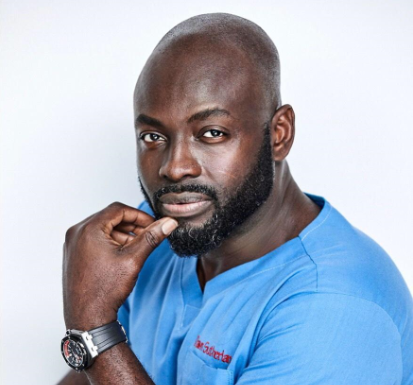We live in a world where even a poverty-stricken Ghanaian child can dream of solving Africa’s health problems. I believe that everything begins with a vision for a better future and a passion for one’s continent and people, with perseverance, no obstacle cannot be overcome. Perseverance conquers all difficulties.
While an individual cannot provide a solution to all of Africa’s unmet health needs, any effort goes a long way. I was a Ghanaian child that dreamt of an Africa in which all citizens would have access to adequate and affordable healthcare.
Africa is the second most populous continent, and home to 16%of the world’s population. The continent receives just a mere 1% of global expenditure on healthcare, a fact which is not only morally reprehensible, but economically unsustainable for families and their entire countries, as evidenced by the high medical costs, often inaccurate diagnoses, medication errors, and inadequate or unsafe clinical facilities for those who cannot afford better.
How does Africa, with a public healthcare system that is largely under-resourced and underfunded, build healthier nations? I have a few ideas:
1. Africa’s healthcare gap is worse in low and middle-income countries where 10-15% of hospitalized patients can expect to acquire an infection during their stay, as compared to 5-7% in high-income countries. This is despite hospital-acquired infections being easily avoided through better hygiene, improved infection control practices and appropriate use of antimicrobials. Because of statistics such as these, I am committed to doing my part to bring quality healthcare to people in developing nations through my non-profit, R.E.S.T.O.R.E Worldwide Inc.
Through the R.E.S.T.O.R.E foundation, which is primarily focussed on reconstructive surgery, not only do I donate my surgical skills, but also my vast knowledge in regard to sustainable healthcare and capacity building within the industry.
Individual efforts to better a community ultimately culminate into a nation built by individuals and this is the Africa we want to see. This is not as difficult as we think to implement in practical ways, for example; if ones passion point is education, one can gather a few of the young people in the area and conduct lessons.
2. I am privileged, not only to be able to provide but also have access to quality healthcare. However, I realize that this is not universal. As I write this, my thoughts are with the people of Mozambique, Zimbabwe, and Malawi who are affected by Cyclone Idai.
What the survivors of this tragedy have in common is their immediate need for resources, stability, comfort, and medical help, among many other things. As well all know, healthcare does not exist in a vacuum. Efforts also have to go towards improving education, skills, and resources, as well as creating strategic partnerships among key stakeholders.
Public-private partnerships exist in all forms to lend a hand to all kinds of causes. Neighborhoods and local governments could team up for a cleaning exercise, professional associations and governing bodies can also team up to help a cause of their own, either as a short or long-term endeavour.
An estimated 60% of healthcare financing in Africa comes from private sources which is a testament to the fact that public-private partnerships are a sustainable and feasible way to grow any sector.
3. Africa is confronted by a heavy burden of diseases such as malaria, tuberculosis, and HIV – not to mention the disease of “inadequate surgical providers”. Studies show a gross lack of knowledge about the basics of how to diagnose and manage common diseases
Africa is definitely ready for relevant, reliable healthcare dialogue. The top 30 innovators showcased at the recently concluded WHO Africa Health Forum in Cape Verde has given me and all other stakeholders immense hope. These 30 brilliant minds from across Africa and beyond have developed simple solutions to the complex and unmet health needs on the continent and these are the success stories that reinforce my belief in the future of a healthy Africa.
4. As healthcare stakeholders, it’s our responsibility to develop new medicines to treat disease, but these medicines are useless if they can’t get to the patients who need them the most. We need to commit ourselves to work together with all other healthcare players and to move away from simply donating aid, to building sustainable infrastructure and capacity.
To answer my opening question on how a public healthcare system that is largely so under-resourced and underfunded can build healthier nations; I say this is one way that a little boy from Ghana or any part of the poverty-stricken parts of the developing world can solve health problems in his or her community and ultimately build healthier nations across the globe. This can be done through identifying their passion point, doing all they can in their power, seeking out other like-minded stakeholders to partner with and working to create better paths for the generations to come.
-For more information visit: restoreworldwide.org
-Dr Michael K Obeng; Founder and CEO of RESTORE Worldwide, Inc. & Global Health Solution
DISCLAIMER: Brand Voice is a paid program. Articles appearing in this section have been commercially supported.
